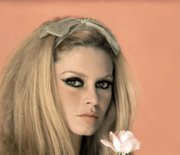Can Centrelink payment hikes boost music festival participation?
By
Seia Ibanez
- Replies 189
In a world where the cost of living seems to be perpetually on the rise, it's no surprise that discretionary spending, especially among the younger demographic, is taking a hit.
The pinch is being felt all the way to the music festival scene, a cultural staple for many young Australians.
But could increasing Centrelink payments be the solution to reviving this industry? This question has sparked a heated debate across the nation.
A bar owner's call to raise Youth Allowance and JobSeeker payments to enable young Aussies to afford nights out and attend music festivals has stirred controversy.
Hugh Scobie, co-owner of Ancient World, pointed to the cost-of-living crisis and rising rents as culprits preventing many from engaging in social activities and thereby crushing the entertainment industry.

Music festivals, once seen as a rite of passage for the youth, are experiencing a significant drop in ticket sales.
‘Most people can't afford to spend $50 on a night out,' Scobie said.
'Raising JobSeeker and Youth Allowance to the amount recommended by the Australian Council of Social Service would help a lot.'
High-profile events like Splendour in the Grass have even been cancelled, with a report from Creative Australia’s Soundcheck revealing a 24 per cent drop in ticket sales. Among the key demographic of 18 to 24-year-olds from 2018/19 to 2022/23.
The National Arts Participation Survey echoed these findings, citing the cost of tickets as the most common barrier to attendance, impacting 55 per cent of respondents.
The most pronounced issue among party-goers under 35 was money issues, with nine out of 10 experiencing financial difficulty in 2023.
'We lost a huge amount of our audience–young people and students whose main income is from Centrelink–almost immediately after interest rates, rents, groceries, and petrol prices went up,' Scobie said.
'Seeing bands and socialising with their friends doesn't seem to be affordable for them in the current economic climate.'
JobSeeker recipients who are single and do not have children receive a fortnightly payment of $762.70, and those on Youth Allowance receive between $395.30 to $806, depending on their age, living arrangements, relationship status, and whether they have children.
Scobie suggested raising Centrelink payments per the Australian Council of Social Service's recommendation.
It is understood that the most extensive set of permanent Centrelink payment increases, particularly a $40 increase on JobSeeker and Youth Allowance, started on 20 September.
JobSeeker recipients, currently receiving an average of $55 a day, should have their payments increased to match the pension rate of $80 a day.
Greens Senator Sarah Hanson-Young has weighed in, suggesting that more taxpayer funds should support festivals while also attributing festival cancellations to climate change and extreme weather events.
'Festivals are an important part of the arts and live music ecosystem. 'Festivals support jobs not only for artists but also in hospitality, tourism and trades as well,' Senator Hanson-Young said.
'It is not a surprise to hear festival organisers say that extreme weather and insurance are among their biggest challenges.’
'We have known for some time that extreme weather events and climate change are making it harder and more unpredictable to put on large-scale events.'
 Do you think Centrelink payments should be increased to support young people's participation in cultural events like music festivals? Share your thoughts in the comments below.
Do you think Centrelink payments should be increased to support young people's participation in cultural events like music festivals? Share your thoughts in the comments below.
The pinch is being felt all the way to the music festival scene, a cultural staple for many young Australians.
But could increasing Centrelink payments be the solution to reviving this industry? This question has sparked a heated debate across the nation.
A bar owner's call to raise Youth Allowance and JobSeeker payments to enable young Aussies to afford nights out and attend music festivals has stirred controversy.
Hugh Scobie, co-owner of Ancient World, pointed to the cost-of-living crisis and rising rents as culprits preventing many from engaging in social activities and thereby crushing the entertainment industry.

A bar owner called to raise Youth Allowance and JobSeeker payments so young Aussies can attend music festivals. Credit: Shutterstock
Music festivals, once seen as a rite of passage for the youth, are experiencing a significant drop in ticket sales.
‘Most people can't afford to spend $50 on a night out,' Scobie said.
'Raising JobSeeker and Youth Allowance to the amount recommended by the Australian Council of Social Service would help a lot.'
High-profile events like Splendour in the Grass have even been cancelled, with a report from Creative Australia’s Soundcheck revealing a 24 per cent drop in ticket sales. Among the key demographic of 18 to 24-year-olds from 2018/19 to 2022/23.
The National Arts Participation Survey echoed these findings, citing the cost of tickets as the most common barrier to attendance, impacting 55 per cent of respondents.
The most pronounced issue among party-goers under 35 was money issues, with nine out of 10 experiencing financial difficulty in 2023.
'We lost a huge amount of our audience–young people and students whose main income is from Centrelink–almost immediately after interest rates, rents, groceries, and petrol prices went up,' Scobie said.
'Seeing bands and socialising with their friends doesn't seem to be affordable for them in the current economic climate.'
JobSeeker recipients who are single and do not have children receive a fortnightly payment of $762.70, and those on Youth Allowance receive between $395.30 to $806, depending on their age, living arrangements, relationship status, and whether they have children.
Scobie suggested raising Centrelink payments per the Australian Council of Social Service's recommendation.
It is understood that the most extensive set of permanent Centrelink payment increases, particularly a $40 increase on JobSeeker and Youth Allowance, started on 20 September.
JobSeeker recipients, currently receiving an average of $55 a day, should have their payments increased to match the pension rate of $80 a day.
Greens Senator Sarah Hanson-Young has weighed in, suggesting that more taxpayer funds should support festivals while also attributing festival cancellations to climate change and extreme weather events.
'Festivals are an important part of the arts and live music ecosystem. 'Festivals support jobs not only for artists but also in hospitality, tourism and trades as well,' Senator Hanson-Young said.
'It is not a surprise to hear festival organisers say that extreme weather and insurance are among their biggest challenges.’
'We have known for some time that extreme weather events and climate change are making it harder and more unpredictable to put on large-scale events.'
Key Takeaways
- Festival ticket sales among young Australians aged 18 to 24 have significantly dropped, attributed to the cost-of-living crisis and ticket prices.
- A bar owner, Hugh Scobie, has suggested raising Youth Allowance and JobSeeker payments to enable young people to participate in social activities like music festivals, which would support the entertainment industry.
- The Soundcheck report revealed a 24 per cent drop in ticket sales within the key demographic for festivals and pointed to the financial pressures on young adults, with costs like rent and groceries limiting their ability to afford event tickets.
- There have been several cancellations of major music festivals in Australia, with reasons ranging from economic pressures on consumers to challenges posed by extreme weather and the unpredictable nature of hosting large-scale events due to climate change.







